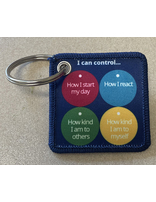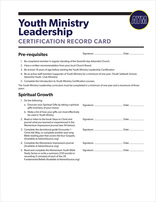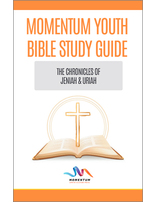 Answer: If people I didn’t really know at a church told me that I wasn’t welcome, I’d find it very difficult to go back. And if my parents told me that I wasn’t good enough for church, I think I’d get defensive, and I’d feel hurt, too.
Answer: If people I didn’t really know at a church told me that I wasn’t welcome, I’d find it very difficult to go back. And if my parents told me that I wasn’t good enough for church, I think I’d get defensive, and I’d feel hurt, too.I wonder why your friend went to church in the first place. Did you invite your friend to go to church? Did your friend go out of curiosity? Or out of a desire to please somebody? Was your friend trying to make a scene? searching for God? doing a report for a class? checking out the opposite sex? wanting a place to pray? hanging with friends? What’s the story?
I can’t help thinking about something similar that happened in the days of Jesus. Here’s how it’s recorded in Matthew 9:10-13:
“While Jesus was having a meal in Matthew’s house, many tax collectors and other outcasts came and joined Jesus and his disciples at the table. Some Pharisees saw this and asked his disciples, ‘Why does your teacher eat with such people?’
“Jesus heard them and answered, ‘People who are well do not need a doctor, but only those who are sick. Go and find out what is meant by the scripture that says: “It is kindness that I want, not animal sacrifices.” I have not come to call respectable people, but outcasts’” (TEV).*
Sound like the same type of thing? I’ve heard it said that our church is a hospital for sinners, not a hotel for saints. That means that your friend is always welcomed by God to visit His house.
But when your friend gets to God’s house—or hospital—he or she might not see the Physician or nurses or even a receptionist. Your friend very well may see other patients!
If you were bleeding to death or had some broken bones and you went to the hospital emergency room, how would you feel if a person whose right arm had just been amputated came to you first? And then what if a person with a gunshot wound to the face cut in front of you?
Sometimes wounded people can feel your pain, because they share a similar type of pain. Sometimes wounded people can even heal you. But most people want to see a physician rather than other patients—at least if they’re hurt!
So when you see other hurt people at church, you can understand why they’re present—they want to be healed too. No wonder Jesus said, “Come to me, all of you who are tired from carrying heavy loads, and I will give you rest. Take my yoke and put it on you, and learn from me, because I am gentle and humble in spirit; and you will find rest. For the yoke I will give you is easy, and the load I will put on you is light” (Matthew 11:28-30, TEV).
In the meantime, yes, your friend should go back to church. Go with your friend. Introduce your friend to those who can help your friend get well. And maybe you and your friend can help some of the other patients at church be healed too!
*Bible texts credited to TEV are from the Good News Bible—Old Testament: Copyright © American Bible Society 1976, 1992; New Testament: Copyright © American Bible Society 1966, 1971, 1976, 1992.

















